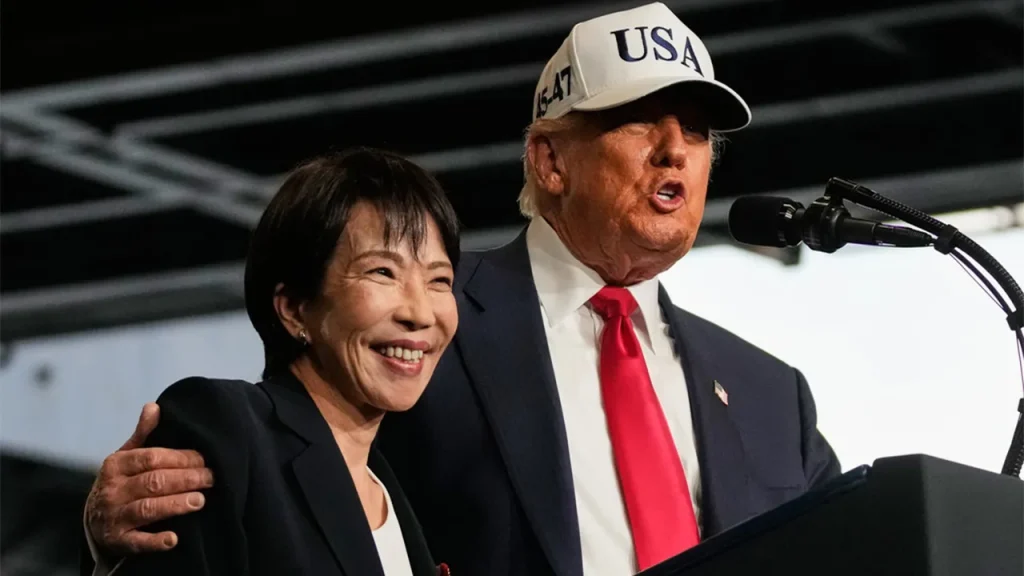Chinese Diplomat’s Threat Against Japanese Prime Minister Sparks Diplomatic Tension
In a shocking display of diplomatic hostility, a Chinese consul general in Japan recently threatened to decapitate Japan’s new Prime Minister Sanae Takaichi over her comments regarding Taiwan. This incident has not only ignited outrage in Tokyo but also highlighted the increasingly strained relationship between two of Asia’s most powerful economies. The threatening remarks came after Prime Minister Takaichi, who took office just last month, expressed concern that a Chinese blockade of Taiwan would create a “survival-threatening situation” for Japan that might require deployment of Japan’s Self-Defense Forces. Her comments reflect the strategic importance of Taiwan, which lies just 60 miles from Japanese territory and whose security Japan sees as intrinsically linked to its own.
The inflammatory response came from Xue Jian, China’s consul general in Osaka, who wrote in a now-deleted social media post: “That filthy neck that barged in on its own — I’ve got no choice but to cut it off without a moment’s hesitation. Are you prepared for that?” This shocking breach of diplomatic protocol prompted an immediate response from Tokyo, with Chief Cabinet Secretary Minoru Kihara condemning the statement as “extremely inappropriate” and confirming that Japan had filed a formal protest with Beijing. Kihara noted that this wasn’t Xue’s first inflammatory remark and called on China to take disciplinary action against the diplomat.
Rather than apologizing or reprimanding their diplomat, China’s Foreign Ministry appeared to defend Xue’s remarks. Spokesperson Lin Jian told reporters that the consul general’s words came in response to what he characterized as “wrongful and dangerous” comments by Prime Minister Takaichi that misrepresented China’s position on Taiwan. Lin accused Japan of “refusing to face up to its historical responsibilities” and warned Tokyo against interfering in what Beijing considers its internal affairs. This response underscores China’s unwavering stance on Taiwan and its sensitivity to any perceived international support for the democratically governed island.
The diplomatic confrontation occurs at a particularly sensitive time in Japan-China relations. Prime Minister Takaichi, known for her nationalist views and hawkish position on China, has pledged to increase Japan’s long-stagnant defense spending above 1% of GDP and to play a more assertive role in maintaining stability across the Taiwan Strait. Her close ties with Washington and commitment to deepening defense cooperation with the United States have likely further irritated Beijing, which views growing Japan-US military collaboration as potentially threatening to its interests in the region, particularly regarding Taiwan. U.S. defense officials have consistently emphasized that Japan’s participation would be crucial in any potential conflict over Taiwan.
Prime Minister Takaichi has since attempted to dial back tensions, telling reporters that her comments were “hypothetical” and pledging to refrain from making similar remarks in the future. However, the damage to bilateral relations may already be done. This incident reflects the delicate balance Japan must maintain—strengthening its defense capabilities and alliances in response to perceived threats from China while avoiding provocations that could lead to further deterioration in the relationship with its powerful neighbor. The episode also demonstrates how quickly tensions around Taiwan can escalate into broader regional friction.
This diplomatic spat exemplifies the growing challenges in East Asian geopolitics, where historical animosities, territorial disputes, and strategic competition increasingly complicate relations between major powers. As China continues its military modernization and assertiveness in the region, and as Japan seeks to play a more active role in regional security under leaders like Takaichi, the potential for misunderstanding and conflict remains high. The incident serves as a stark reminder of how seemingly routine diplomatic statements can quickly spiral into heated exchanges that threaten regional stability, particularly when they touch on sensitive issues like Taiwan’s status—a flashpoint that continues to define and complicate the strategic landscape of East Asia.


